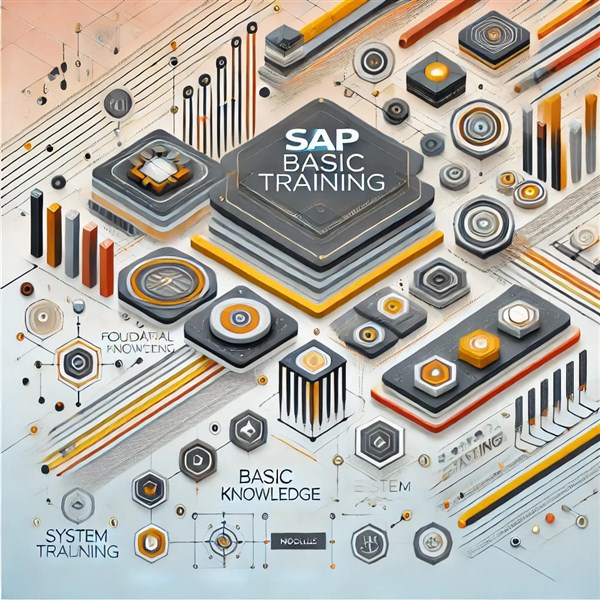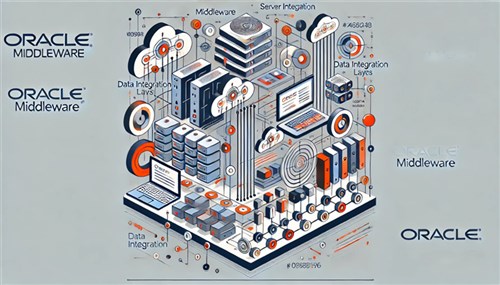
SAP (Systems, Applications, and Products in Data Processing) is a powerful suite of software that is widely used for managing enterprise resources across various business functions, including finance, logistics, human resources, and customer relations. SAP plays a pivotal role in helping businesses streamline operations and make data-driven decisions.
For those interested in a career in enterprise resource planning (ERP), SAP is one of the most valuable tools to master. As an entry point, SAP basic training is the key to understanding the core functionalities and modules of the system. Whether you're transitioning into a new career or looking to enhance your skills, this guide will take you through the essential components of SAP basic training and how it sets the stage for your career success.
What is SAP Basic Training?
SAP basic training is designed to introduce beginners to the fundamental concepts and functions of SAP. It covers the core aspects of SAP software, focusing on the user interface, navigation, and key modules, and how businesses use these tools to optimize various processes.
Unlike advanced SAP training, which dives deeper into specialized areas like SAP Financial Accounting (FI), SAP Sales and Distribution (SD), or SAP Materials Management (MM), basic training provides a broad overview of the SAP ecosystem. It helps individuals understand how SAP works and how various modules integrate with one another.
Why is SAP Basic Training Important?
SAP is a complex system, and without a foundational understanding, it can be difficult to dive into more advanced topics. SAP basic training gives you the confidence and knowledge to navigate the system, understand the terminology, and know the overall structure of SAP.
Here are a few reasons why SAP basic training is essential:
- Understanding the Basics: SAP basic training helps you grasp the fundamental concepts, which are crucial for any further specialization in SAP.
- Career Foundation: Basic training opens doors to numerous career paths in the SAP domain, including SAP functional consulting, system administration, and development.
- Enhanced Job Prospects: SAP is widely used across industries. Being trained in the basics increases your marketability and makes you a valuable candidate for various SAP-related positions.
- Improved Efficiency: For professionals already working with SAP, a deeper understanding of the basics can help improve your day-to-day efficiency.
What Does SAP Basic Training Cover?
SAP basic training typically covers several key areas that lay the groundwork for advanced training. Here are some of the main topics you will learn in an SAP beginner course:
-
Introduction to SAP:
- Overview of the SAP ecosystem.
- Basic terminology and concepts used within SAP.
- Understanding the user interface, navigation, and key features of SAP.
- SAP System Architecture:
- How SAP fits into a business’s IT architecture.
- SAP system components (database, application server, client, etc.).
- Understanding how different modules integrate with each other.
- SAP FI (Financial Accounting): This module helps manage the financial transactions of a company, including accounts payable, accounts receivable, and financial reporting.
- SAP MM (Materials Management): This module deals with the procurement process, including purchasing, inventory management, and vendor management.
- SAP SD (Sales and Distribution): It covers sales orders, delivery processing, and billing.
- SAP HR (Human Resources): Basics of managing employee data, payroll, and benefits administration.
- SAP PP (Production Planning): Focus on the production process, from planning to manufacturing.
- Introduction to basic configuration settings in SAP.
- How to modify simple settings to align with business needs.
- Understanding the role of configuration in SAP implementation.
- Hands-on practice using SAP’s interface.
- Basic transaction codes and their uses.
- How to navigate through various transactions within SAP.
- Creating basic reports in SAP.
- How to enter data into SAP modules.
- Understanding SAP’s reporting capabilities.
- Core SAP Modules:
- Basic Configuration and Customization:
- Navigating SAP GUI (Graphical User Interface):
- Reporting and Data Entry:
The Benefits of SAP Basic Training
For beginners, SAP basic training offers several advantages:
-
Comprehensive Introduction:
The course provides a complete overview of SAP software, allowing beginners to familiarize themselves with all key functions. -
Career Flexibility:
SAP basic training is an entry point for various SAP roles, including SAP functional consultant, SAP support, or SAP analyst. This training gives you a clear career path in any SAP-related role, regardless of the industry. -
Hands-On Learning:
Basic training often includes practical exercises using SAP’s live environment, which helps solidify your understanding of the theoretical concepts. -
Increased Earning Potential:
With companies across industries investing heavily in SAP solutions, SAP professionals are highly sought after. Starting with basic training can enhance your resume and improve your job prospects, often leading to higher-paying opportunities. -
Stepping Stone to Advanced SAP Certifications:
SAP basic training is a prerequisite for more specialized certifications. By learning the basics, you can pursue advanced certifications in specific modules like SAP MM, SAP FI, or SAP HR.
How to Get Started with SAP Basic Training
If you’re ready to begin your journey into SAP, here are the steps to get started with SAP basic training:
-
Choose a Learning Path:
Decide whether you prefer instructor-led courses, online training, or self-paced learning. There are many learning platforms offering SAP basic training, including SAP’s own training portal, Udemy, LinkedIn Learning, and more. -
Enroll in a Course:
After selecting a platform, enroll in a beginner’s SAP training course. These courses typically offer video tutorials, reading materials, and quizzes to assess your progress. -
Start Practicing:
Make use of available SAP trial systems or sandbox environments to practice what you’ve learned. Hands-on experience is key to mastering SAP. -
Continue with Advanced Courses:
Once you’ve completed the basics, consider moving on to more specific SAP training (e.g., SAP FI, SAP MM, SAP SD) to specialize in the area that interests you most. -
Consider Certification:
While SAP basic training provides foundational knowledge, obtaining certification in SAP can further solidify your expertise and increase your employability.
Conclusion
SAP basic training is the ideal starting point for anyone looking to pursue a career in enterprise resource planning (ERP). It provides the essential knowledge to understand SAP's role in business processes, equips you with practical skills, and opens up a world of career opportunities. By mastering the basics, you position yourself to advance in the dynamic field of SAP, with access to more specialized training and certification in your area of interest.
Whether you’re a student, professional transitioning to IT, or someone aiming to expand your skill set, SAP basic training is an invaluable investment in your career. Get started today and unlock your potential in one of the most widely used ERP systems in the world.
Understanding SAP basics is crucial for anyone looking to excel in their career or drive business success. Koenig Solutions, a leading IT training company, offers a variety of SAP basic training courses that are designed to equip you with the skills and knowledge you need to succeed in the SAP world.







COMMENT